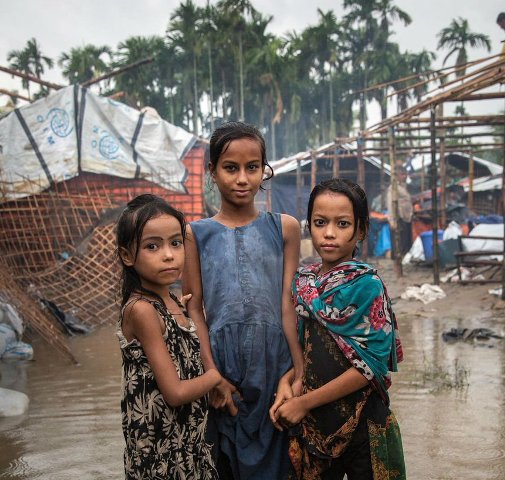UNHCR Steps Up Aid for Rohingya Refugees Affected by Landslides in Cox’s Bazar
In response to the disaster, UNHCR and its partners have mobilized teams to provide immediate assistance.

The UN Refugee Agency (UNHCR) and its humanitarian partners are intensifying their efforts to support approximately 8,000 Rohingya refugees impacted by recent landslides in the Cox’s Bazar refugee settlements in Bangladesh. The landslides, triggered by the first monsoon rains of the season, have resulted in significant devastation, adding to the ongoing challenges faced by the refugees.
Initial reports indicate that seven Rohingya refugees, including children, have lost their lives, with many others injured. Nearly 1,200 shelters have been destroyed or damaged, displacing around 2,000 refugees. The monsoon rains have brought further hardship to the already vulnerable residents of the camps.
Cox’s Bazar is highly susceptible to climate change and natural disasters, making it one of the hardest-hit areas in Asia. Since 2017, the refugee camps, home to approximately 930,000 Rohingya refugees across 33 congested camps, have experienced over 770 landslides and floods. With more rain forecast, additional damage is expected.
In response to the disaster, UNHCR and its partners have mobilized teams to provide immediate assistance. Efforts are underway to find shelter for the displaced and repair damaged accommodations. In addition to shelter, affected refugees urgently need food, household items, healthcare, and psychosocial support to cope with the trauma, especially for the children.
UNHCR is urgently appealing for additional resources to bolster humanitarian efforts, which are currently hindered by severe underfunding. The financial requirements for Bangladesh in 2024 amount to $275 million, with only 25% funded so far. The 2024 inter-agency appeal for the Rohingya situation, led by Bangladeshi authorities under the Rohingya Humanitarian Crisis Joint Response Plan (JRP 2024), seeks $852.4 million but is less than 30% funded halfway through the year. Fulfilling the pledges made at last year’s Global Refugee Forum is crucial to advancing self-reliance for the Rohingya refugees and alleviating the pressure on the Bangladeshi government, which continues to host them generously.
UNHCR and its partners are committed to supporting the Rohingya refugees during this difficult time, but the success of these efforts relies heavily on the generosity and prompt action of international donors.
- READ MORE ON:
- Rohingya
- UNHCR
- Cox’s Bazar
- Bangladesh










